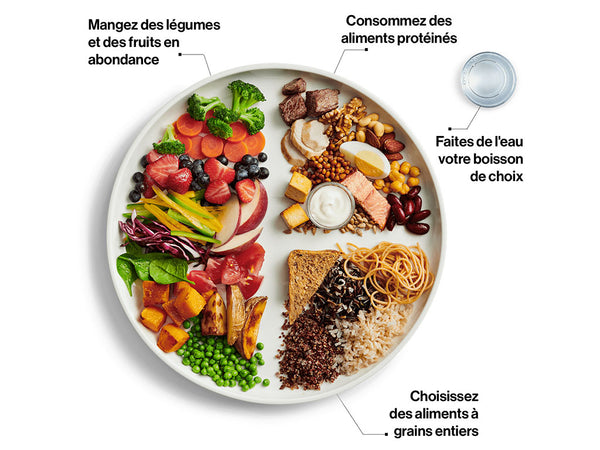You may have read or heard that the foods of today are less nutritious than those of yesteryear. Have you wondered if it's a rumor, or if it's true Should we eat more fruits, vegetables andgrains to have the same nutrients?
Here's what the science says:
Studies published in the early 2000s compared the seeds used in the past with those of today. These studies report that some foods today are actually less nutritious.
In general, three hypotheses are proposed to explain these nutritional differences:
- the dilution effect
- soil degradation
- climate changes.
The dilution effect
The 1960s, with the green revolution, led to more productive cultivars. Of course, this helped feed more people on the planet. In this way, we demand an increase in yield from the soil. Also, the increased use of chemical fertilizers has doubled, if not increased tenfold, the yield of fruits, vegetables and grains.
The dilution effect therefore refers to the difference between the increase in the yield of foods and the nutritional value of these foods, which does not seem to have observed the same increase. The nutrients are diluted, shared, between the different plants.
Soil degradation
The rapid growth of plants, called intensive cultivation, is very demanding on the soil, with nutrients being drawn from it very quickly. Also, soil compaction induced by agricultural machinery contributes to soil degradation. However, degraded soils have a negative impact on the nutritional value of food, as plants are less able to draw nutrients from degraded soils than from healthy soils.
Farmers therefore add chemical or natural fertilizers to try to restore this balance, but according to Ms. Jacynthe Dessureault-Rompré, agronomist, it is still difficult to have a good synchronization between the nutrient inputs given to the soil with the different fertilizers and the cultural needs.
Climate changes
Finally, the increase in CO2 in the atmosphere accelerates the growth of food, which could be good news in itself, but which decreases their nutritional value, because they absorb fewer minerals (e.g. zinc, iron).
It is predicted that if greenhouse gas emissions continue at this rate, iron content could decrease by 10% in wheat, rice and soybeans. What is worrying is that a large part of the world's population has a diet that relies on these foods. Deficiencies could be expected.
Current situation and recommendations
Can we make a direct link between the decrease in nutrients in food and the fact that many Canadian adults have deficiencies in nutrients such as magnesium, calcium, and vitamins A and D? Apparently not yet. Canadian adults just wouldn't get enough of it..
A 2017 study concedes there is some truth to the idea that the nutrient content of certain foods has decreased.
However, this study argues that the changes are not nutritionally significant, so they are not likely to impact the nutritional health of consumers.
The study concludes by mentioning that small decreases in certain nutrients can easily be counteracted by observing Canada's Food Guide recommendations regarding the consumption of vegetables, fruits and whole grains.
Indeed, only 30% of the Canadian population would follow the recommendations of the guide, and consume 5 to 10 servings of fruits and vegetables per day.

Future prospects
In conclusion, more studies are needed to better understand the causes of these decreases in certain nutrients, in particular climate change and increasingly demanding agriculture on the soil, which could accentuate this phenomenon in the years to come.
Could we add that it is important to take care of our planet. It's our pantry. (See article:What is sustainable food and how to do ite?)
References:
- https://www.scientifique-en-chef.gouv.qc.ca/impacts/ddr-les-foods-sont-ils-moins-nutritifs-quavant-ce-quil-faut-savoir/
- Marles, R. (2017).Mineral nutrient composition of vegetables, fruits and grains: The context of reports of apparent historical declines, Journal of Food Composition and Analysis,56, 93-103.
- https://food-guide.canada.ca/en/

